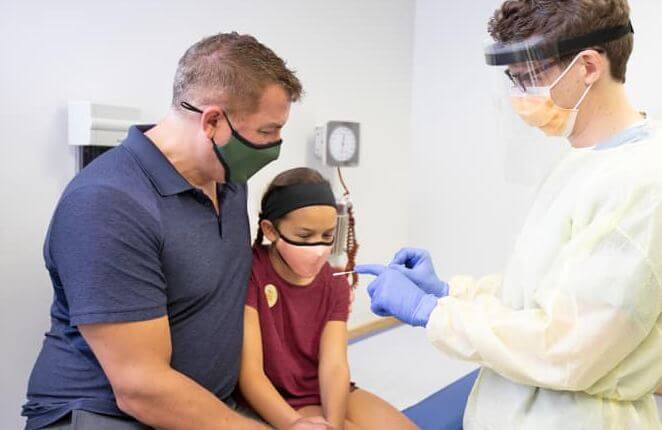Pfizer’s much-anticipated vaccine for 2-5 year-olds is no longer imminent. The company said it does not expect to have a vaccine for 2-5 year-olds until “the first half of 2022.” That’s if all goes to plan from here, after things decidedly did not go to plan for the kids thus far.
Friday’s announcement – the result of a routine review of ongoing research – came as a surprise from a company that has kicked all the goals of vaccine development thus far. Pfizer’s vaccine was approved for 5-11 year-olds in the US at the end of October and Australian approval followed in early December.
Testing the vaccine for 2-5 year-olds, though, has been hampered by questions on dosing. The standard dose of 30µg was modified to 10µg for 5-11 year-olds. In that age group, this ended up showing roughly the same efficacy as the standard dose had for adults.
For the toddlers, the dosage was reduced again to 3µg. While this worked out to be safe enough, it didn’t do enough for the vaccinated cohort relative to the placebo group.
Unstated in all this is the logistical difficulty of proving vaccines’ efficacy. The test group and the placebo group get their injections and then go about their lives. Some inevitably get Covid but, hopefully, a lower number get Covid in the vaccinated cohort.
In the adult studies, infections in the vaccinated cohort were less than 10% of infections in the placebo group, most of whom never got Covid anyway. The studies are trading in fractions of fractions.
That works fine with the adults, when there are multiple studies that each enrolled tens of thousands of people, but it isn’t so easy with the kids. The ongoing Pfizer study enrolled only 4,500 children, and the fraction of a child cohort who would contract Covid is inevitably lower anyway.

Then you consider that the studies are pre-structured and blinded. You can’t just have some, then take a little more – unless, that is, it’s part of a newly-added “booster regime.”
This is precisely what Pfizer is now going to do for the 2-5 year-olds. If the testing comes through positive next year, it’s likely kids will be given this three-dose regimen, the product of improvised dosing that’s then tested and – fingers crossed – shown to work.
It’s brilliant and wonderfully contingent high-stakes science. Parents will be hoping they strike the winning formula asap.
Follow Christian on Twitter for more news updates.